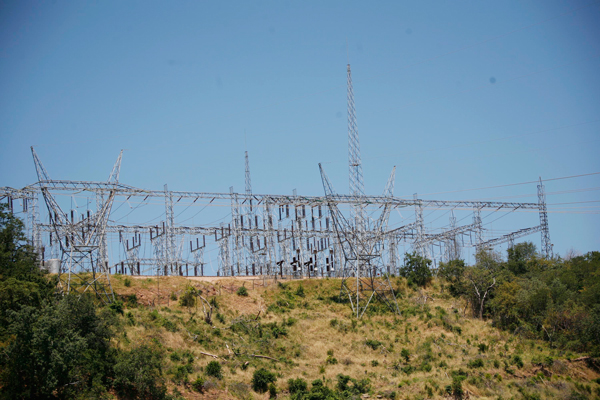
The ongoing power cuts will deliver the final blow to the ailing manufacturing sector and experts warn of more job losses.
BY VICTORIA MTOMBA
The power utility Zesa has rolled load-shedding schedules whereby residents may go for as much as 24 hours without power as it battles to distribute the available power. Kariba Power Station is generating 475MW instead of 750MW due to low water levels. Zesa also generates power at Hwange, Kariba and three small thermal stations in Harare, Munyati and Bulawayo, but this is not enough to satisfy the national needs.
The crisis has badly affected the small-to-medium enterprises which account for over 70% of employment in Zimbabwe. The Abattoirs Association of Zimbabwe recently said the power cuts had resulted in heavy losses as butcheries reduced uptake.
The 8am to 5pm work shift for a number of companies has been rendered academic, as workers spend most of their time doing nothing due to power cuts.
Many companies now resort to generators, thereby pushing up the cost of production. This has made local products uncompetitive.

An executive with a local firm told Standardbusiness that when power goes off, they switch on to generators and they also have to use machines that do not consume a lot of power.
- Chamisa under fire over US$120K donation
- Mavhunga puts DeMbare into Chibuku quarterfinals
- Pension funds bet on Cabora Bassa oilfields
- Councils defy govt fire tender directive
Keep Reading
“In most cases, power is restored at the end of the day and there are no schedules that are adhered to. This makes it difficult to plan the shifts as one does not know the time when the power will be available,” he said.
Confederation of Zimbabwe Industries president Busisa Moyo said load-shedding would reduce the few industries that were still operating and would also see companies cutting back on expansion projects that would have created jobs which are in demand.
“We have not computed the cost of the power shortage, but we have seen that the load-shedding schedule has not spared industrial areas like Workington, Southerton and Msasa in Harare, Belmont, Donnington and Kelvin in Bulawayo and Bata in Gweru,” he said.
Moyo said the power cuts had come at a time companies were preparing to meet the increased demand associated with the forthcoming festive season. He said local companies had to meet increased demand following the introduction of duty on the importation of basic commodities that were found locally.
“The lack of assurance of power will also see more companies laying off workers as they cannot carry a fixed cost without production,” Moyo said.
He said some companies were on a ring-fenced tariff — paying more to be assured of electricity — adding that it was raising the cost of doing business and making Zimbabwean companies uncompetitive.
Moyo said companies would be faced with higher costs of production due to “start-stop” production, “incur heavy losses, fail to raise throughput and have high fixed costs per unit due to lower volumes”.
Moyo said to address the power challenges, private players should be allowed to import electricity and use Zimbabwe Electricity Transmission Distribution Company infrastructure for a nominal charge so that industry is assured of power.
He said CZI had requested for a meeting with Zesa Holdings to suggest mechanisms and technologies to the national power utility.
“Zesa needs to be restructured or the country will be paralysed. It’s time to act now. Their current structure is too unwieldy and costly and there is a lack of transparency and lack of wide consultation. The water levels at Kariba should have been foreseen before opening the floodgates last year,” Moyo said.
Chamber of Mines of Zimbabwe chief executive officer Isaac Kwesu, said the mining sector had been negatively affected by power cuts. He said Zesa was yet to fulfil its promises to the mining sector.
Kwesu said they had not collated the figures as yet but the industry was operating below capacity at 50% although the platinum companies were operating at 100%.
“Electricity is a critical input to production. We fear that we will not reach our 2015 target. We understand the situation is a crisis. We need to prioritise and save the critical sectors that generate and create employment,” he said.
Zimbabwe is pursuing various hydro, solar and thermal power projects countrywide.











